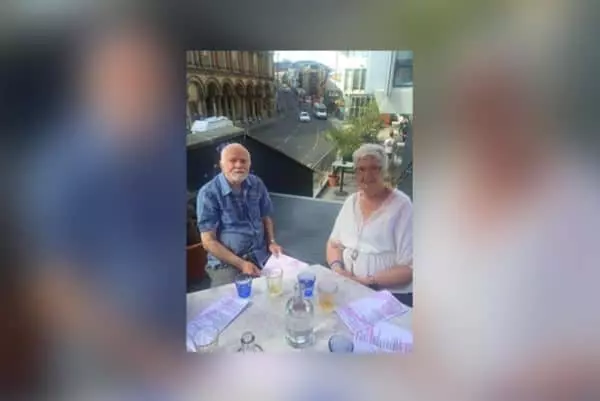
Earlier this year, Mesothelioma.com had the privilege of sharing the story of Mavis Nye, a woman from the United Kingdom who was diagnosed with mesothelioma in June 2009. Since then, Mavis has undergone a number of treatments in an effort to defeat this deadly disease.
One of those treatments included a clinical trial for a new immunotherapy drug known as Keytruda® (pembrolizumab). This emerging treatment has shown promise in treating a variety of cancers, most recently having been approved by the U.S. Food and Drug Administration (FDA) to treat head and neck squamous cell carcinoma (HNSCC). The drug was also famously credited with removing any trace of brain cancer from former President Jimmy Carter last year.
The effectiveness of Mavis’ treatment using Keytruda® is a promising development for those who have mesothelioma, and her story offers a bright light of hope for those who suffer from this usually deadly disease. As it has been almost six months since we first brought Mavis’ story to our blog, we wanted to reach back out to her to find out how she has been doing since the trial was completed. Mavis generously responded and shared her current status and thoughts with us.
The last time we spoke with you, you were in the middle of a clinical trial that was testing Keytruda®. Now that the trial is finished, are you still feeling positive effects from the treatment? Have you seen any recurrence of the disease?
Mavis: Yes I have positive effects from the trial as I have complete response. My tumours are very small and benign, too small to have a PET scan even. I’m the first person to be able to say I’m in remission in the UK. If I stay that way for 5 years, we can talk about a cure, but if it grows again I can have another year of the drug at the Royal Marsden.
All my scans show complete response and I have been finished the trial for two months now, and so a scan on September 9 will be the one they will do all their report from as they compare with the one I had May 2014. That will finalize the two year trial.
So no recurrence of the disease has shown to date.

How has your experience with the Keytruda® trial helped you connect with other mesothelioma awareness advocates?
Mavis: I have found everyone wants me to talk at their conferences or write an article about my trial and the conclusion. iMig [the international Mesothelioma interest group] was brilliant as all the doctors from around the world were present and I answered all their questions and spoke to so many.
My work with McMillian, British Lung Foundation, Mesothelioma UK, Cancer Research UK, and Patient Rep has increased, so I feel very involved now creating awareness of mesothelioma and the dangers of asbestos. I’m more involved with the removal of asbestos and the safety of the men that work in the industry.
What are some things you would want others who are considering participating in clinical trials to know about beforehand?
Mavis: I have guided the Mesowarriors UK on Facebook and Sufferers on emails and contacts from my blog into the next trial at The Royal Marsden (MK3475-158) and have answered all their worries and questions as they go through treatment. PDL1 [a cell receptor tied to cancer cell death] plays a big part, and they have to have this in their biopsy, the one that was done for diagnosis, so you may not have another one taken.
One big thing is, if you want treatment other than palliative care, you must be prepared to travel to the few hospitals that carry out trials. The trials cost too much to have them in every hospital. I always say have chemo first to knock the mesothelioma back to shrinkage so you have time to search for a trial.
There are many trials starting, and 2017 will be even bigger than 2016. So stay positive and find a trial. Mesothelioma UK publishes a good chart or go to ClinicalTrials.gov.
In the U.S., Vice President Joe Biden is leading a “Cancer Moonshot” initiative, part of which is focused on developing new immunotherapy drugs like Keytruda®. In your opinion, how important is this type of effort in finding a cure for mesothelioma?
Mavis: Any publicity for new drugs out there is good. I spent so much time, money and energy finding treatment. Google has been my friend as I have searched. Cancer Moonshot was a great source, and one day that cure for all will be found, so keep up the good work Vice President – you will be our hero!
Mesothelioma.com wants to thank Mavis Nye for the time she took to answer our questions and share her continued story of survival against mesothelioma. We wish her the best as she continues to fight this disease and spread awareness at home and around the world.



